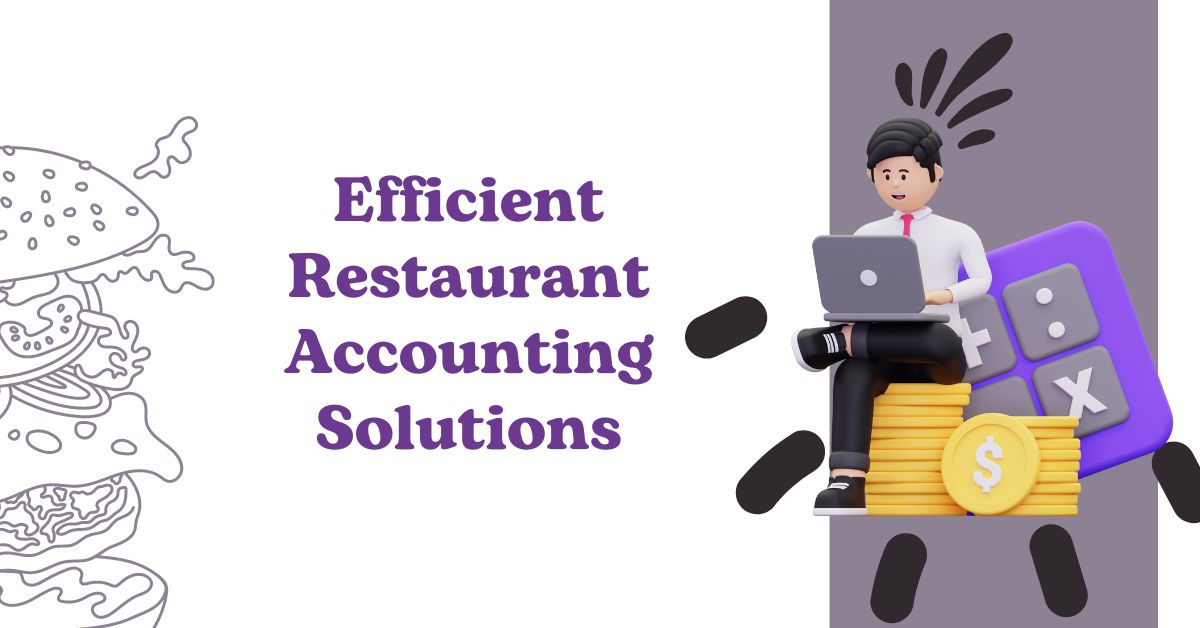In the bustling world of restaurant management, efficient accounting solutions are the backbone of financial stability and growth. Proper restaurant accounting ensures that a business remains profitable, compliant with regulations, and prepared for future challenges. This article explores various aspects of efficient restaurant accounting solutions, emphasizing the importance of bookkeeping for restaurants and the role of a skilled restaurant bookkeeper.
Understanding Restaurant Accounting
Restaurant accounting involves more than just tracking sales and expenses. It encompasses a wide range of financial activities, including payroll management, inventory tracking, cost control, and financial reporting. Effective restaurant accounting solutions streamline these processes, providing clear insights into the financial health of the business.
Key Components of Restaurant Accounting
- Bookkeeping for Restaurants
-
-
- Daily Sales Tracking: Monitoring daily sales is crucial for understanding revenue trends and identifying peak business hours.
- Expense Management: Keeping a detailed record of all expenses, including food costs, labor, utilities, and rent.
- Inventory Management: Accurate inventory tracking helps prevent wastage and ensures optimal stock levels.
- Payroll Management: Calculating wages, taxes, and benefits accurately to maintain employee satisfaction and compliance.
-
- Financial Reporting
-
-
- Profit and Loss Statements: Providing a clear picture of profitability over specific periods.
- Cash Flow Statements: Monitoring cash inflows and outflows to ensure liquidity.
- Balance Sheets: Offering a snapshot of the restaurant’s financial position at a given time.
-
- Tax Compliance
-
- Sales Tax Management: Ensuring accurate sales tax collection and remittance.
- Income Tax Preparation: Properly preparing and filing income tax returns to avoid penalties.
The Role of a Restaurant Bookkeeper
A restaurant bookkeeper plays a pivotal role in maintaining accurate financial records and ensuring the smooth operation of accounting processes. Their responsibilities include:
- Data Entry: Recording daily transactions meticulously to maintain up-to-date financial records.
- Reconciliation: Regularly reconciling bank statements to ensure all transactions are accounted for.
- Expense Categorization: Classifying expenses correctly to facilitate detailed financial analysis.
- Financial Reporting: Preparing and analyzing financial reports to provide insights for decision-making.
Choosing the Right Accounting Software
Selecting the appropriate accounting software is critical for efficient restaurant accounting. The right software should offer:
- Ease of Use: An intuitive interface that simplifies data entry and report generation.
- Integration Capabilities: Compatibility with other restaurant management systems, such as point-of-sale (POS) and inventory management software.
- Scalability: The ability to grow with the business, accommodating increasing data volumes and complexity.
- Real-Time Reporting: Providing up-to-date financial data to facilitate timely decision-making.
Popular Accounting Software Options
- QuickBooks: Known for its user-friendly interface and comprehensive features tailored to small and medium-sized businesses.
- Xero: Offers robust integration capabilities and real-time financial data access.
- Restaurant365: Specifically designed for the restaurant industry, providing end-to-end accounting and management solutions.
Implementing Efficient Accounting Practices
To achieve efficient restaurant accounting, it is essential to implement best practices that enhance accuracy and streamline processes. Key practices include:
- Regular Audits: Conducting periodic audits to verify the accuracy of financial records and identify discrepancies.
- Automated Systems: Utilizing automated accounting systems to reduce manual errors and save time.
- Consistent Training: Ensuring that staff members are well-trained in accounting procedures and software usage.
- Detailed Documentation: Maintaining comprehensive records of all financial transactions and decisions for future reference and compliance.
Outsourcing vs. In-House Accounting
Restaurants can choose between outsourcing their accounting functions to professional firms or maintaining an in-house accounting team. Each option has its benefits:
- Outsourcing: Provides access to expert knowledge, reduces overhead costs, and allows the restaurant to focus on core operations.
- In-House Accounting: Offers greater control over financial processes and the ability to address issues promptly.
Conclusion
Efficient restaurant accounting solutions are indispensable for the success and longevity of a restaurant. By focusing on accurate bookkeeping for restaurants, leveraging the expertise of a skilled restaurant bookkeeper, and implementing best practices, restaurant owners can ensure their financial operations are streamlined and effective. Whether opting for advanced accounting software or choosing to outsource accounting tasks, the goal remains the same: achieving financial clarity and stability for sustained growth.
